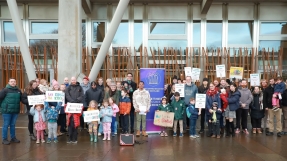
After two weeks of polarised talks in Poland, Christian Aid is warning that the latest commitments by world leaders still fall far short of what is needed to stop catastrophic climate change.
COP24 came to an end in Katowice on Friday without any firm commitments to implement national carbon emission reduction plans by 2020 - one of the goals of the 2015 Paris Agreement.
Without these, Christian Aid said it would be impossible to close the gap between the goal of 2C global temperature rises with the current trajectory of between 2.7C and 3.5C of global heating.
Mohamed Adow, Christian Aid's International Climate Lead, said it was 'vital' that all countries deliver their revised plans at the special UN Secretary General summit in 2019.
Mr Adow singled out the USA, Saudi Arabia, Russia and Kuwait for particular criticism, saying they had 'acted like an axis of evil' to stall international agreement on climate change.
The US has said it will withdraw from the process, while all four countries have refused to welcome a scientific report saying that reliance on coal and other fossil fuels will have to be dramatically scaled back to stop temperature rises of more than 1.5C.
When it came to financial assistance for poor countries struggling to meet the costs of climate change adaptation, he suggested the World Bank may not deliver on its recent pledge of $100bn over the next five years.
'But rich countries have been allowed to count almost anything and everything as climate finance, including commercial loans. This puts into question the sincerity of the $100bn pledge for poor countries,' he said.
Alden Meyer, director at non-profit science advocacy group, the Union of Concerned Scientists, told Reuters that the 'political will is missing' at the international level.
Simon Stiell, Environment Minister of Grenada in the Caribbean, told Reuters that the pledge of financial assistance 'is barely scratching the surface of what we really require'.













